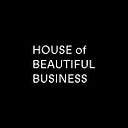Fighting Fiction
Lilith — a powerful, controversial figure from Jewish mythology — provides a vision of independence, liberation, and wisdom.

By Aditi Khorana
Despite my own navel-gazey inclinations, I tend to resist a particular strain of pious overindulgence that can be found in many writers. Karl Ove Knaussgard is someone who comes to mind: I often roll my eyes at the mere mention of him (he’s not looking, it’s fine, and besides, what do I know? His books have sold like a gazillion more copies than my own). But this delightful and thought-provoking quote of his made me rethink my tightly-clasped bias: “The duty of literature is to fight fiction. It’s to find a way into the world as it is.”
Most would balk at the idea of finding the world as it is in 2018. Certainly the Spaceship Earth ride I took at Epcot Center over 30 years ago did not warn me of a future involving a Trump presidency (replete with rallies, fake news, twitter wars, and pee tapes), the extinction of 60 percent of the planet’s wildlife in 50 years and, you know, that climate report that no one seems to be doing anything about.
There’s no real win to landing in 2018 American reality. Remember that spate of 90s and early aughts films where Will Smith or Tom Cruise or some other square-jawed man was valorously fighting off aliens? If aliens dropped ship on the UN lawn today, they would feel sorry for us, maybe disgusted even. They’d promptly leave us to continue destroying ourselves so they might be able to return to repopulate the planet cleanly and efficiently once we’ve had our go.
And yet, this idea of finding a way into the world as it is, the drive to fight fiction(s) perplexes and compels me. It’s an invitation that paradoxically can’t be refused in this dark age in which we now reside. Together. All of us. That means you too. It requires a stripping away of the veil and telling the truth. Fictions help no one.
I went to one of those east-coast liberal universities where we spent our days lamenting the male gaze. My father complained that my tuition was far too expensive for me to be taking class upon class on what he deemed gibberish.
What I learned later, once I entered the world, still inchoate and uncertain, not yet set in the mold that few people manage to circumvent, was how binding, corseted, if you will, the feminine script was and how tightly I was expected to adhere to it. It was a fiction too, something I slipped into with great ease when encountering the unwelcome flirtations of a stranger on the subway, or when my boss sent me with a group of men to a higher-up’s office to ask for an expansion of the annual budget. “Make sure you wear a skirt,” he said, leering. I was 24. I think I actually giggled in discomfort before I decided I hated him and plotted to destroy his career. It took a few years, but I did eventually.
I knew the role I was expected to play. I understood what I was supposed to say, how I was expected to act. Because, no doubt, the prescription was a kind of medicine that supposedly inoculated me, a young woman, from the alienation experienced by women who contravened the very laws that I abided by in broad daylight (and very well), while I broke them behind closed doors and in the dark.
And alienation is always the essential ingredient that keeps women performing according to plan. A backup system just in case those initial instructions on being a woman don’t sink in.
Working as a producer in news was a daily challenge. Journalists in my family spoke of journalistic ethics, their drive to tell the truth. “Yeah, but that’s not what I do,” I thought. The news operation I worked for was rallying for ratings, for an illegitimate war. I’d like to think I didn’t start out disillusioned, but who am I kidding? Maybe it began with all those days of high school that I cut, pretending to be sick, while still showing up to take exams and turn in papers. Is there anyone who can abide being told what to do when what we’re told to do makes absolutely no sense? Who are these people? I don’t know any of them. Not anymore, at least.
I smiled, listened like I cared. Co-workers and bosses would have described me as “pleasant,” “efficient,” “hard-working.” Little did they know that when their backs were turned, I was copying documents at the Xerox machine, or tossing Betamax tapes into padded envelopes, mailing them to documentary makers. I billed the postage to my office too. I didn’t resent being a woman or even a “model minority” (though I do hate that term). I quite enjoyed it, because no one would ever have thought to accuse me of the kinds of things I did for years on end, in every office I worked at, in every industry. If this was a confession, I’d be contrite. It’s not. And I’m not. Flipping the script was how I learned myself and I wouldn’t give that up for anything in the world, even if no one was there to witness it but me, especially since no one was there to witness it but me. Male gaze, be damned. How, I wondered, did other women survive this bullshit?
Time and time again, the closer I adhered to the script I was given, the more adept I became at embodying that feminine play in broad daylight, and the more I was rewarded by the status quo, the more I sought to transgress its norms when no one was looking. The whispers didn’t start till I was well into my thirties. I wasn’t the only one, it turned out. I don’t know whether the tribe found me, or I found it, but I landed into the extended family I had always sought because those who dispel fictions, or actively undermine them, recognize one another. I am a human tuning fork for people like me. I still don’t know how they find me. But they do. And perhaps that’s what makes it bearable.
I don’t work in an office anymore, which is a good thing for everyone involved. I encountered the Lilith myth at a moment when I realized that even breaking femininity into two distinct scripts: conformity and transgression is still limiting in scope. Still codes that underpin a patriarchal insistence that women be measured according to certain norms and limitations. To be transgressive in any context: civic, familial, professional, is to be incomprehensible. It’s kind of a boon to be incomprehensible to others, to shapeshift, to allow others to give you that wide berth because they can’t quite pin you down. Who wants to be pinned down? But it’s a disability when one is incomprehensible to oneself.
Lilith taught me how to become a whole composed of many parts. In delving into the myth I began to understand that even the left-hand path of transgression is still the edge of a razor; one can walk it for thousands of miles to no end, and fall into impossible abysses with great ease. I wanted to understand, to use all my darknesses in service to some sort of light I still begrudgingly believed in. One doesn’t break rules insistently and secretly unless there’s some hopeless idealism still caught in those cross-hairs, aching desperately to survive.
I’ve lived with Lilith now for almost a year. When I’m confused, I ask her questions. When I encounter a grave injustice, she tells me what to do. She’s a different kind of fiction, or maybe not a fiction at all, but something more timeless, a chimera yes, but one that that hems as close to any sort of truth that I might locate in my life. There are days when finding my way into the world as it is still feels impossible, and fictions have always been my addiction. I am a writer, after all. I’ve always lived and breathed and sweated and bled fictions; many of which have near destroyed me. Lilith, on the other hand, has saved me. She’s allowed me to make the incomprehensible within myself somewhat comprehensible, if only to me. To be clear(er) eyed is its own challenge. But it feels good to turn the page on a worn-out fiction.
Aditi Khorana, a House17 and 18 resident, is author of the critically acclaimed novels Mirror in the Sky and The Library of Fates.
The Journal is a production of The Business Romantic Society, hosts of the House of Beautiful Business. Sign up for the monthly newsletter at https://www.beautifulbusinessletters.com/
The House can be found on Twitter, Facebook, Linkedin, and Instagram, but most importantly in Lisbon, Portugal from November 2–6, 2019. Request an invitation at houseofbeautifulbusiness.com.
#BeautifulBusiness #HouseofBB #House18

